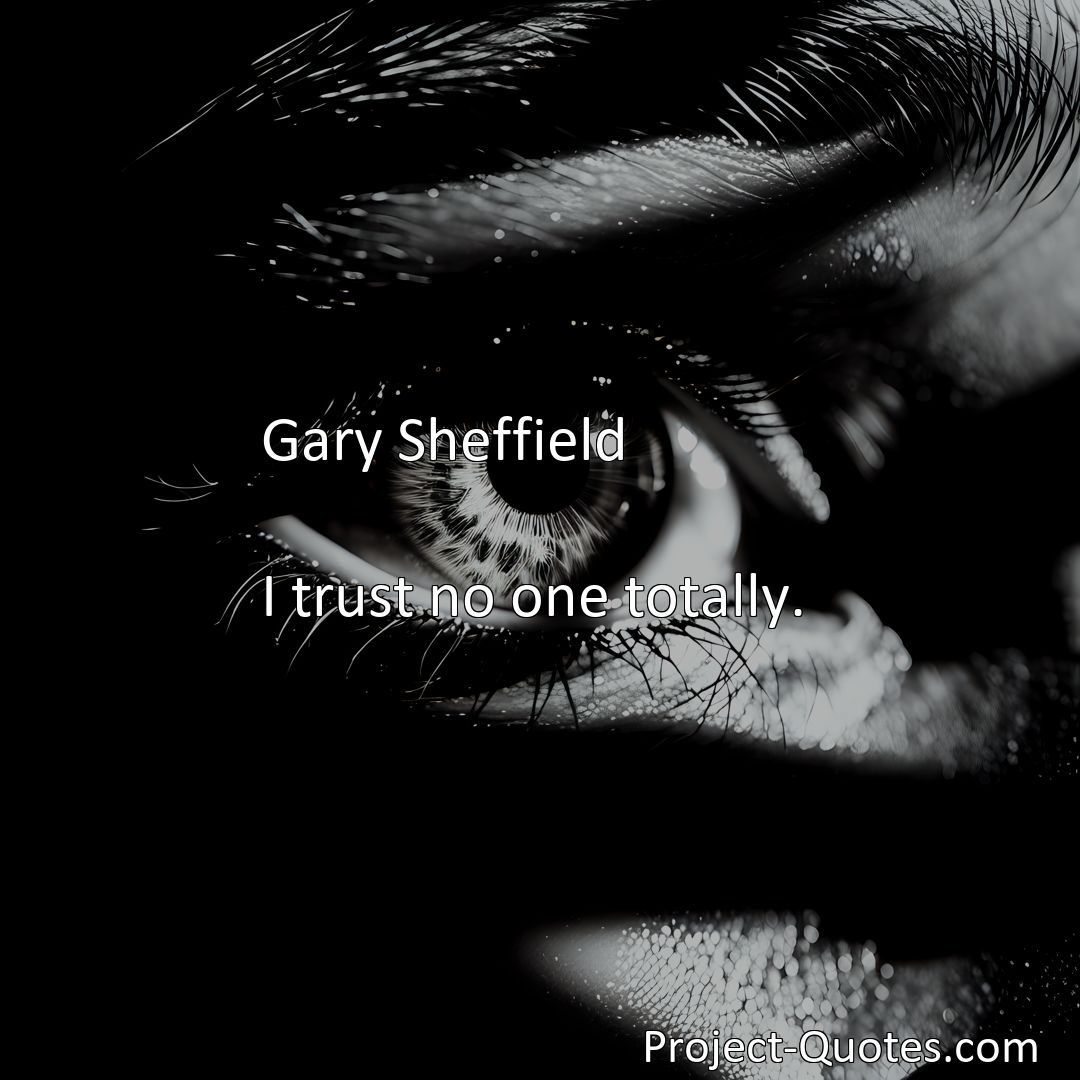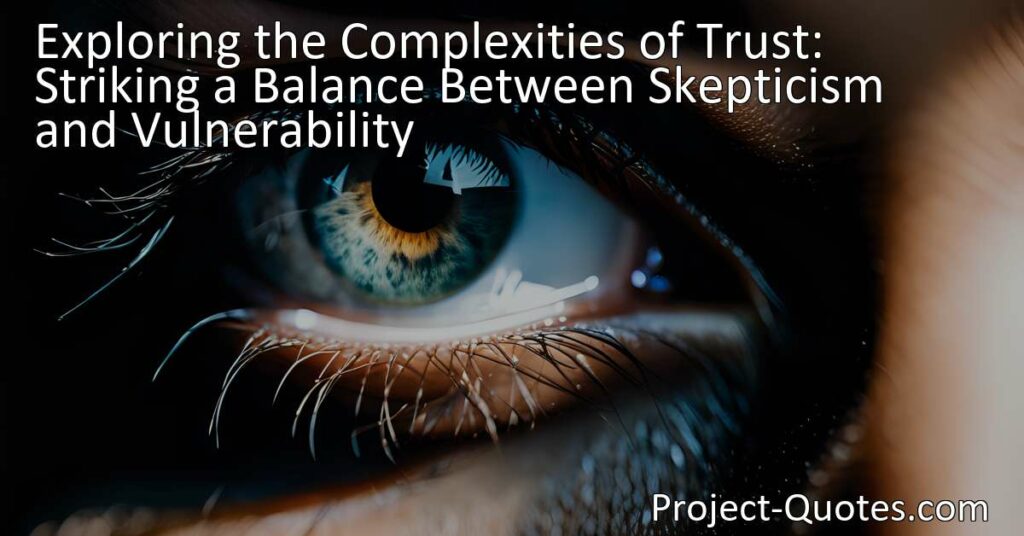I trust no one totally.
Gary Sheffield
Exploring the Complexities of Trust: Striking a Balance Between Skepticism and Vulnerability This article explores the intricacies of trust, emphasizing the delicate balance between skepticism and vulnerability. It highlights the importance of trust in relationships while acknowledging the need for caution in placing complete faith in others. By developing discernment and observing consistent positive behaviors, we can navigate the complexities of trust and build meaningful connections.
Table of Contents
Meaning of Quote – I trust no one totally.
In a world filled with uncertainties, it’s natural for us to question the trustworthiness of those around us. Trust, after all, is not something that can be easily given, but rather earned over time through consistent actions and reliability. However, even with this cautious mindset, it can be quite disheartening to think that we cannot fully trust anyone. Let’s explore this quote and delve deeper into the complexities of trust, its importance in our lives, and how we can navigate this delicate balance.
Trust forms the foundation of any healthy relationship, be it with friends, family, or romantic partners. It is the glue that holds us together, making us feel secure, understood, and supported. Without trust, relationships become fragile and vulnerable, leaving us constantly on guard, unsure of the intentions of others.
Yet, the quote reminds us that placing absolute trust in anyone can be problematic. People are complex beings, capable of both acts of kindness and betrayal. In order to maintain a sense of self-preservation and protect ourselves from deceit, we must exercise caution and avoid blindly placing our faith in others.
However, this does not mean that we should close ourselves off completely. Trust, in its essence, is a calculated risk. We need to strike a balance between skepticism and vulnerability. It’s about giving people the benefit of the doubt while keeping our eyes open for any red flags. It’s about trusting until proven otherwise, all while being mindful of our own boundaries and well-being.
Learning to trust and building trusting relationships is a crucial part of personal growth and emotional well-being. Trusting others allows us to form deep connections, bolster our support systems, and experience the joys of shared experiences and meaningful interactions. Trust is the necessary ingredient for fostering teamwork, cooperation, and community building.
However, trust should not be given without careful consideration. It is important to assess the character and actions of those around us, as well as their impact on our lives. Trust should be earned through consistent positive behaviors, reliability, and honest communication. By carefully observing how others handle their responsibilities, display integrity, and show empathy, we can determine who is deserving of our trust.
At times, it may be difficult to trust due to past experiences or personal insecurities. Betrayal or broken trust can be deeply painful and can erode our ability to place faith in others. It is essential to acknowledge and address these wounds, allowing ourselves to heal and grow. Seeking professional help, talking to trusted friends or family members, or engaging in self-reflection can be valuable tools in rebuilding trust and regaining confidence in others.
Moreover, it is crucial to understand that trust is not a one-time commitment but an ongoing process that requires effort from both sides. It is a mutual agreement, built on clear expectations, open communication, and shared values. As we trust others, we must also work towards being trustworthy ourselves. Our words and actions should align, demonstrating integrity, and proving that we are reliable and dependable.
While the quote suggests a certain level of skepticism, it is important to remember that not everyone is untrustworthy. There are countless individuals who are sincere, compassionate, and genuine in their intentions. By painting everyone with the same brush, we risk missing out on meaningful connections and the support that trustworthy individuals can provide.
To navigate the complexities of trust, it is helpful to develop a discerning mindset. We should carefully judge people’s actions, but also remain open to the possibility that they can change and grow. Humans are capable of transformation, and it is through forgiveness and understanding that we allow others to redeem themselves.
In conclusion, the quote “I trust no one totally” highlights the complexities of trust and the need for cautious optimism in our relationships. Trust is a delicate balance between skepticism and vulnerability, between protecting ourselves and giving others the benefit of the doubt. While absolute trust in anyone may seem challenging, it is crucial to recognize that trust is an essential component of healthy relationships and personal growth. By developing discernment, setting boundaries, and observing consistent positive behaviors, we can navigate the intricacies of trust and forge genuine connections with others.
I hope this quote inspired image brings you hope and peace. Share it with someone who needs it today!


